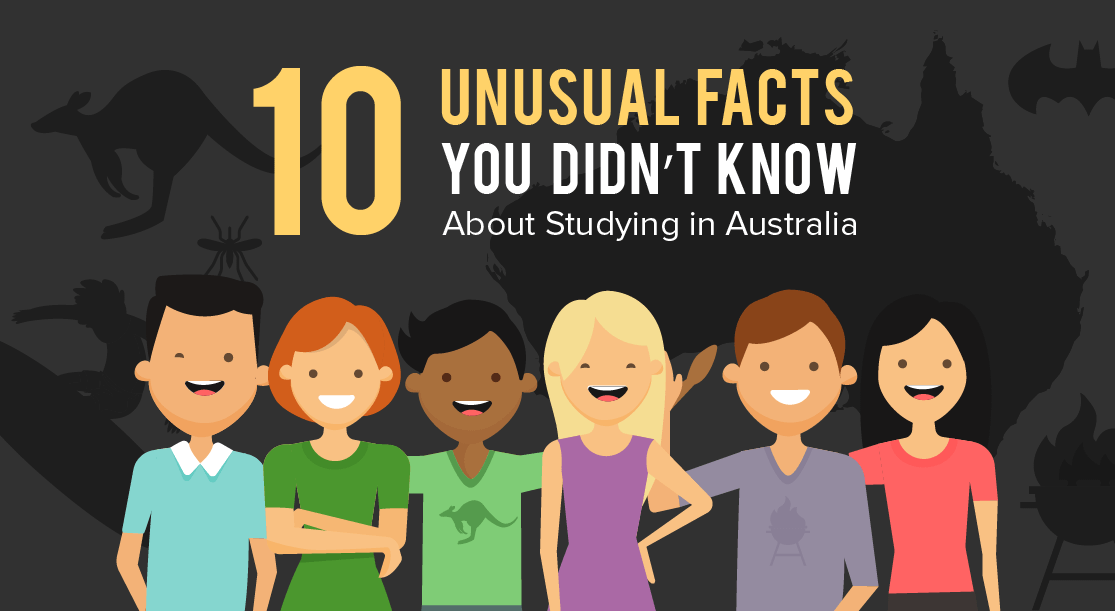Studying Overseas: 5 Questions to Ask Yourself Before Making a Decision
Should you study abroad or study locally? Here are 5 things you should consider before making a final decision.
Updated 08 May 2019

Let’s face it — we’ve all wanted to experience living in another part of the world, and what better way to experience it than to pursue your university studies abroad?
However, there are many factors to consider before taking the leap, such as cost and whether you are mentally prepared to live and study in a foreign land. At which point you might wonder, should you study locally or go abroad anyway?
If you’re torn between these choices, here are 5 important things to consider to help you make a decision.
#1. Can you afford it?
Local: The tuition fees and cost of living is considerably cheaper. You can also apply for loans if you need financial assistance.
Abroad: Generally more expensive due to international student fees and living costs. Financial aid and scholarships can be extremely competitive.
Probably the most important factor to consider when deciding whether to study locally or abroad is the fees you’ll be paying. If you’re strapped for money, studying locally would make more financial sense.
For starters, you may not have to worry about accommodation or transport if you study at an institution that’s close to home. Even if you choose to study in a different state and have to fork out cash for accommodation and transport, the cost of living in Malaysia is still considerably cheaper than cities such as London. To boot, you have a wider range of options to fund your tertiary education, including a range of education loans (e.g. PTPTN) and scholarships.
Conversely, studying abroad can be a costly affair — not only will you be paying international student tuition fees, you will also have a host of other expenses to pay for, such as accommodation, food, visa fees and flight tickets. On top of that, you’ll also have to worry about the fluctuating exchange rates, which can throw your budget off track! Scholarships may be hard to come by, which means you’ll have less options to finance your education abroad.

#2. Are you open to different cultures and new experiences?
Local: You will be surrounded by the familiar mix of cultures and faces you are accustomed to since you were young.
Abroad: You will be exposed to a whole new world of customs and traditions that could give you a culture shock.
The best part about continuing your studies locally is that you are already familiar with the language and culture — one less thing to worry about as a student! However, you will not enjoy the new experiences that come with living in a foreign country or be exposed to a wider range of people from varying backgrounds, which can be a great learning experience.
Conversely, studying in different a country, such as in the United States of America (USA), Australia or the UK will mean adapting to new cultures, way of life and even accents and phrases! You’ll experience the joy of living in a new environment (e.g. experiencing snow for the first time!), meet and network with the locals and sample the local fare.
Adapting to a new culture, however, can also be a stressful experience for some. For example, some countries may be more open or conservative from what you’re used to in Malaysia. Japan is home to some quirky festivals, such as the Kanamara Matsuri (Penis Festival), whereas a country such as India is conservative when it comes to dressing, so how open you are to new experiences and cultures can greatly affect your ability to cope in a foreign country.
Apply for university with EduAdvisor
Secure scholarships and more when you apply to any of our 100+ partner universities.
Start now#3. Can you live independently?
Local: You can have the comfort of knowing that you’re only a short bus, train or plane ride away from home.
Abroad: You will be thousands of miles away from your family and may experience homesickness if this is your first time away from home.
If you have been staying with your parents for the most part of your life, moving out for the first time may prove to be challenging, regardless if you move to a different state or country.
However, moving within Malaysia itself can be less daunting as your family may only be a short bus or train ride away, which can keep homesickness at bay. Even if you have an emergency, there’s comfort in being on familiar territory where the people and culture aren’t so foreign.
Conversely, while moving to different country can be challenging and nerve-wracking, it can also be an experience that helps you flourish! There’s no safety net as your friends and family will be thousands of miles away and may not be able to pack their bags and visit you on a whim. You’ll need to handle problems on your own, from medical emergencies to your banking and housing issues, which will nurture your independence and develop your maturity.
#4. What degree are you planning to study?
Local: Most Malaysian universities offer common university degrees.
Abroad: Certain niche degree programmes are more available abroad and not offered locally.
Are you thinking of pursuing common university degrees, such as medicine, engineering, business and law? In that case, you will have plenty of options available right here in Malaysia. Additionally, several institutions offer 3+0 or 4+0 programmes from universities in Australia and the USA, where you will undertake the same course modules as the students studying abroad. That way, you can obtain a foreign degree on home ground for a fraction of the cost.
However, if the programme that you want to study is rather niche (e.g. aerospace engineering, political science, zoology) and is only available overseas, you may need to consider going abroad. Universities abroad also often have a wider range of electives, such as European languages, performing arts and world history, providing you with a more holistic education experience.

#5. Will it help with your career options?
Local: Securing a local degree doesn’t mean that you will be inferior to overseas graduates.
Abroad: Getting a foreign degree may not necessarily boost your employment opportunities, unless your qualification is highly sought after.
Getting a local degree doesn’t necessarily limit your employment opportunities.
Employers in Malaysia are generally flexible in terms of hiring fresh graduates. In fact, according to a Jobstreet survey, 64% employers said that they did not care whether graduates were from foreign, private or public universities. It all boils down to your willingness to learn, ability to apply your knowledge into the field and having some key skills that can benefit an organisation.
On the other hand, if your goal is to secure a job overseas upon completing your studies abroad, you may face stiff competition as employers may favour their local candidates, unless your qualification is highly sought after. Additionally, getting a foreign degree does not necessarily guarantee you better employment opportunities in Malaysia as employers may also look into other factors such as your skill set, personality and interpersonal skills.
Regardless of whether you choose to study locally or abroad, there are always pros and cons that come with each option. So weigh these considerations thoroughly before making the final decision. After all, tertiary education is no cheap feat, but armed with the right degree, it will open you up to a world of opportunities.











